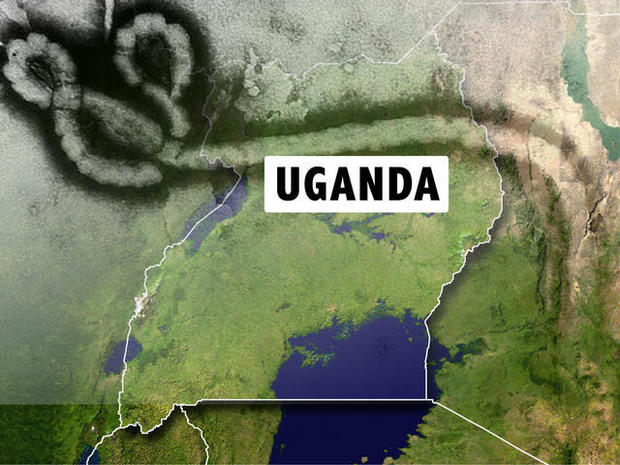Ebola virus fears strike Uganda's capital city
(CBS News) As fears of the Ebola virus spread through Uganda, health officials are bracing the country's capital city, Kampala, for a possible outbreak.
On Saturday, Ugandan Ministry of Health officials and the World Health Organization (WHO) announced that14 people had died from the Ebola virus. A spokesperson for the WHO told NPR that thirty-six people are confirmed to have recently had the disease.
Officials: Ebola sickens more than 20 in Uganda, 14 dead
Which airports are more likely to spread contagion?
While the infected have resided in Kibaale - a district west of the capitol - one of the patients traveled from the area to a Kampala hospital, where he later died. The densely-populated city has a population of 1.5 million, according to AFP. No one has contracted the virus yet in Kampala, but because one of the sick was in the city, there are fears they could have spread the virus. While precautions are being taken such as radio announcements and posters alerting people to take care, the fact that there are so many highly-trafficked markets and crowded slums in the area makes it challenging to get the word out.
According to the WHO, the Ebola virus has five different species: Zaire, Sudan, Cote d'Ivoire, Bundibugyo and Reston. Zaire, Sudan and Bundibugyo have been known to cause large Ebola haemorrhagic fever (EHF) outbreaks in Africa, which has a fatality ratio of 25 to 90 percent of the people infected.
The specific strain that is affecting Uganda right now is the Sudan version, which has had five outbreaks in Africa since 1976, NPR reported. It kills about 50 percent of the infected. One of the latest outbreaks was in 2000, in which 224 Ugandan residents died.
Typically, the Ebola virus is transmitted through direct contact with blood, secretions, organs or other body fluids of infected people, the WHO said. Burial ceremonies in which live people have contact with the recently deceased infected or health care workers who aid in the treatment of Ebola victims are often at risk. Symptoms include intense weakness, muscle pain, headache and sore throat. Vomiting, diarrhea, rash, impaired kidney and liver function, and in some cases, both internal and external bleeding are also observed.
President Yoweri Museveni on Monday that citizens should take precautions to guard themselves against the disease.
"Ebola spreads by contact," he said in a statement. "When you contact each other physically then Ebola spreads through sweat, through saliva in case you kiss, blood (exchange of blood) vomiting in case you touch the vomit of somebody who is sick or diarrhea, urine, sexual fluids etc all those transmit Ebola. Fortunately it seems Ebola does not spread through air (through breathing) it spreads through contact." [sic]
The seven doctors who treated the patient in Kampala as well as 13 health workers who made the journey with them from Kibaale are currently under quarantine. A typical quarantine involves isolation for 21 days, Centers for Disease Control and Prevention spokesman Tom Skinner told NPR. After two 21-day periods where no one falls ill, the outbreak is considered to be over. The CDC, WHO and Uganda's Ministry of Health are working together to figure out how many people are possibly infected and to control the disease.
As for the disease spreading to other countries, CNN points out that it's highly unlikely for it to reach the United States. The only known outbreak in the U.S. was when monkeys were imported, which resulted in no human cases, and when two tourists traveling in Uganda were infected and traveled to the U.S. No one else was infected because of precautions taken.
For more on how pandemics can spread through travel, read HealthPop's article on airports most likely to spread contagions.
